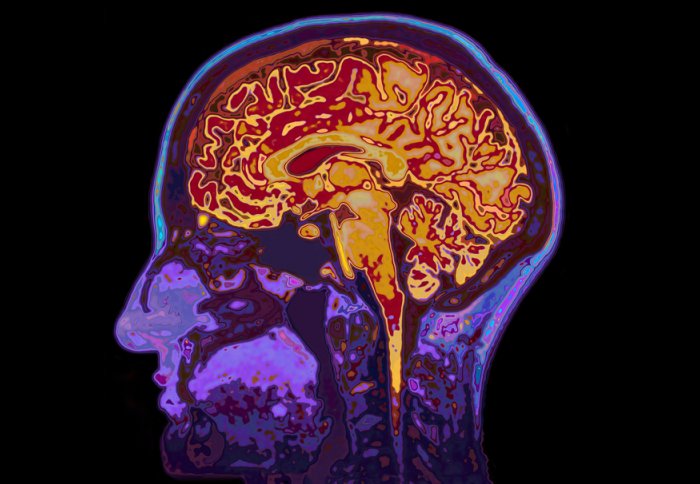
For years, the scientific and medical communities have been puzzled by Alzheimer’s disease. Often seen as a disease of old age, the cause has long been a mystery. But new Alzheimer’s research means we’re closer than ever to finding effective solutions for Alzheimer’s prevention—or even a cure.
The most commonly accepted theory behind Alzheimer’s is that amyloid precursor proteins—a type of protein abundant in neural synapses—break down into the amyloid plaques found in the brains of Alzheimer’s patients. This creates a pathological condition which destroys the connections between nerve cells in the brain. But recent research by the Australian Institute for Bioengineering and Nanotechnology found that amyloid plaques alone are not responsible for the death of brain cells.
So what does cause neuron death? As with most chronic diseases, inflammation is the number one suspect.
A Good System Gone Wrong
Just as the body has macrophages to protect against infections, the brain has microglia—a specialized type of glial cell, or nervous system support cell—to get rid of intruders. Found only in the brain and spinal cord, microglia work much like macrophages to scavenge any foreign or dead cells or tissues that threaten the health of the central nervous system.
It’s a good system – most of the time. In the case of Alzheimer’s, the brain’s microglia recognize amyloid plaques as a threat. This triggers an immune response resulting in inflammation. Unfortunately, amyloid plaques can’t be eliminated like an infection can. The resulting chronic inflammation causes widespread damage, harming healthy brain cells in the process. As more and more healthy cells are damaged and die, Alzheimer’s symptoms progress until the brain can’t function normally.
With this in mind, it makes sense that controlling inflammation in the brain is a logical approach to Alzheimer’s prevention and treatment.
Underlying Causes of Inflammation
While we don’t know how to get rid of amyloid plaques yet, there are ways to control inflammation. Alzheimer’s prevention is always easier than treatment, but many of these methods could be helpful in any stage of Alzheimer’s progression.
Some of the top causes of brain inflammation include:
- Stress. Like amyloid plaques, stress triggers an immune response in the brain.
- Injuries. Brain injuries such as concussions increase the risk for developing Alzheimer’s.
- Poor diet. Improper nutrition can increase levels of inflammation in the body. Lack of vitamins and minerals can also increase risk for physical injury.
- Environmental toxins. Air and water pollution can carry harmful toxins that our bodies absorb. If they find their way to the brain, these toxins may trigger inflammation.
At a glance, it may seem nearly impossible to protect yourself from brain inflammation. But the truth is, keeping your brain healthy is easier than you may think.
Solutions for Brain Health and Alzheimer’s Prevention
As outlined above, brain inflammation can happen for many reasons. Luckily, there are just as many – if not more – ways to keep your brain healthy! Here are a few of the ones we have found most helpful:
- Firstly, the Hache Protocol for Pain Resolution™ is uniquely designed to eliminate unwanted inflammation, making it an excellent guide for maintaining brain health. In addition to focusing on diet, exercise, stress relief, and proper sleep, the Protocol brings a unique and powerful element to the mix: microcurrent therapy, which has been found to actively work with your body to decrease chronic inflammation.
- Another great way to support your brain health is by taking specific supplements. For example, highly absorbable types of magnesium such as magnesium hexahydrate is effective in treatments of many different inflammation-related ailments. In addition, supplements such as LV-Curcumin are formulated to provide excellent anti-inflammatory support. We highly recommend this high dose curcumin for the prevention and management of all inflammatory disease.
- Our third top recommendation is Vagus Nerve Stimulation through microcurrent therapy. The longest of the cranial nerves that connect the brain with the body, the vagus nerve is an important regulator of the “fight or flight” reflex. Stimulation of the vagus nerve has been found to dramatically reduce inflammation throughout the entire body, as well as regulating the body’s stress response and promoting a state of relaxation and well-being. Microcurrent offers an easy-to-use and non-invasive way to activate the systemic anti-inflammatory capabilities of the vagus nerve that can be highly effective in Alzheimer’s prevention and treatment.
What You Can Do
The above recommendations are great ways to boost your brain health. But everyone has different needs, so it’s always best to create a personalized health plan.
Not sure where to go from here? A great place to start is to schedule a complimentary consultation with us. We’ll assess your situation and help you figure out the best next steps for your personalized Alzheimer’s prevention or treatment plan. This can easily be done over phone or video chat from anywhere in the world.
Book Now
If you’re concerned about your or a loved one’s brain health, don’t hesitate. With simple lifestyle changes, you can greatly diminish your risk for developing Alzheimer’s.
Sources:
https://www.everydayhealth.com/wellness/united-states-of-stress/link-between-stress-inflammation/
https://en.wikipedia.org/wiki/Amyloid_precursor_protein
https://www.healthline.com/human-body-maps/vagus-nerve
https://www.thecut.com/2019/05/i-now-suspect-the-vagus-nerve-is-the-key-to-well-being.html





